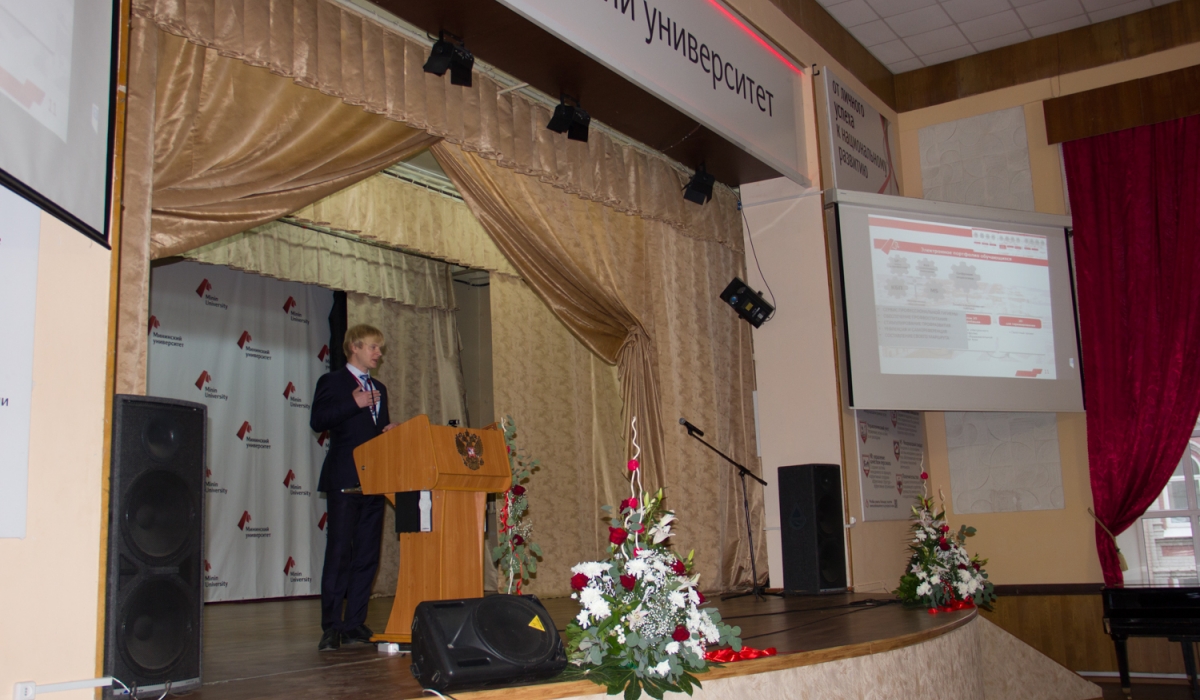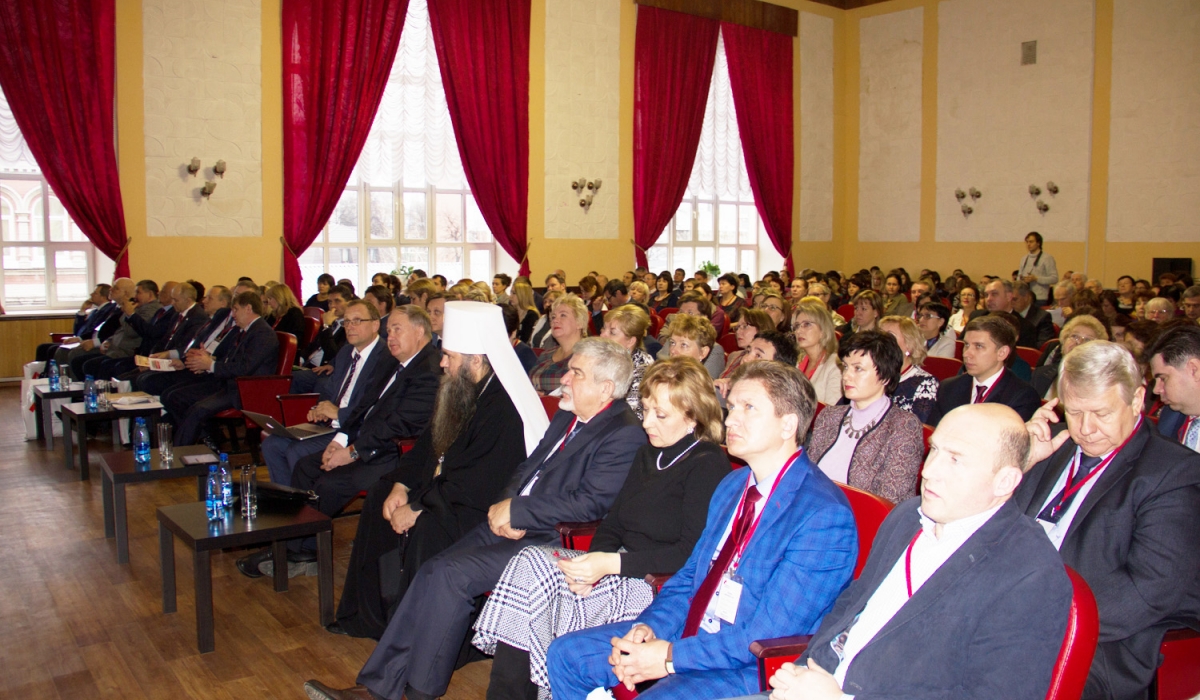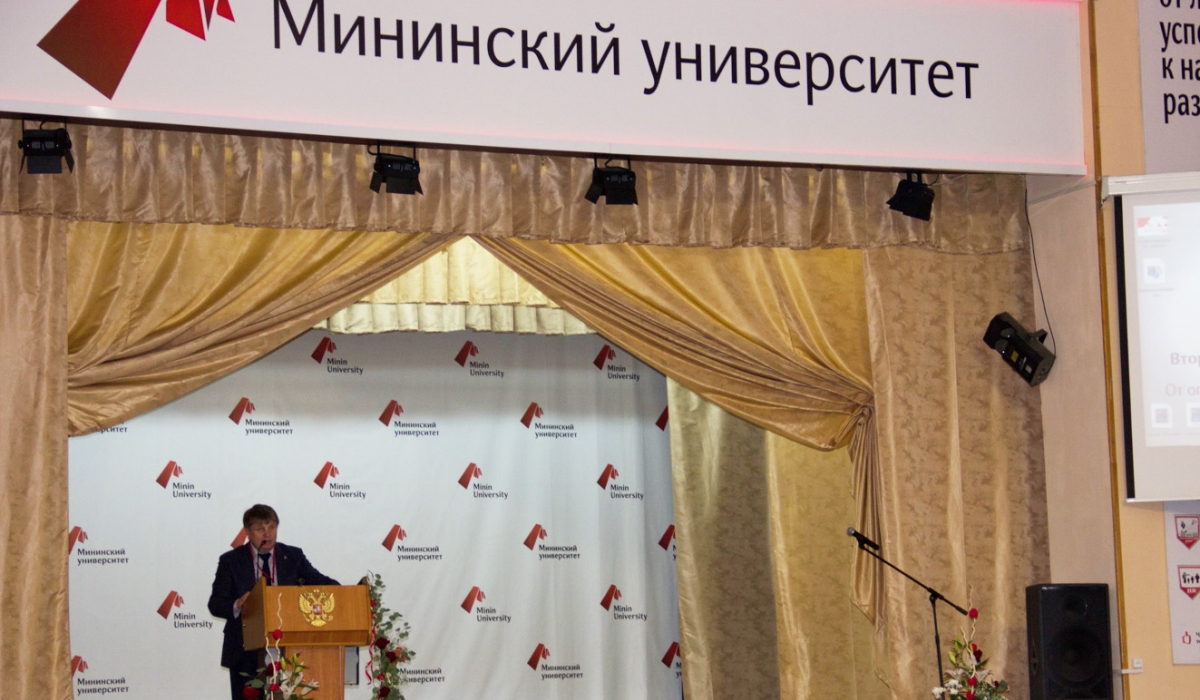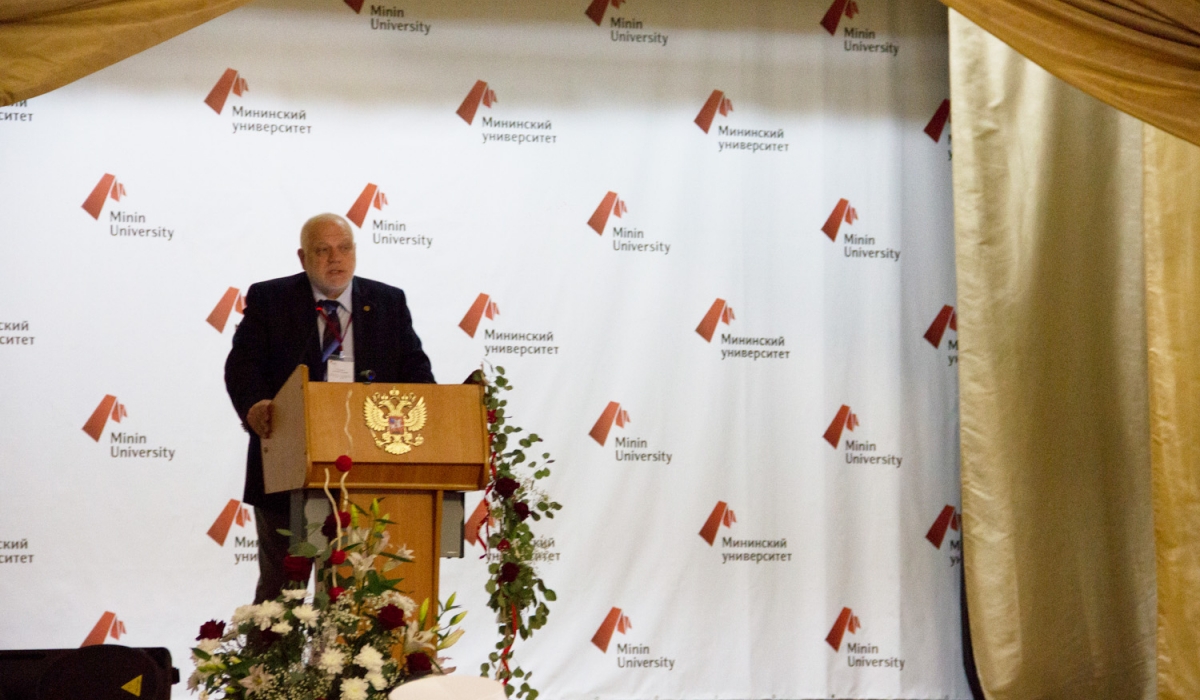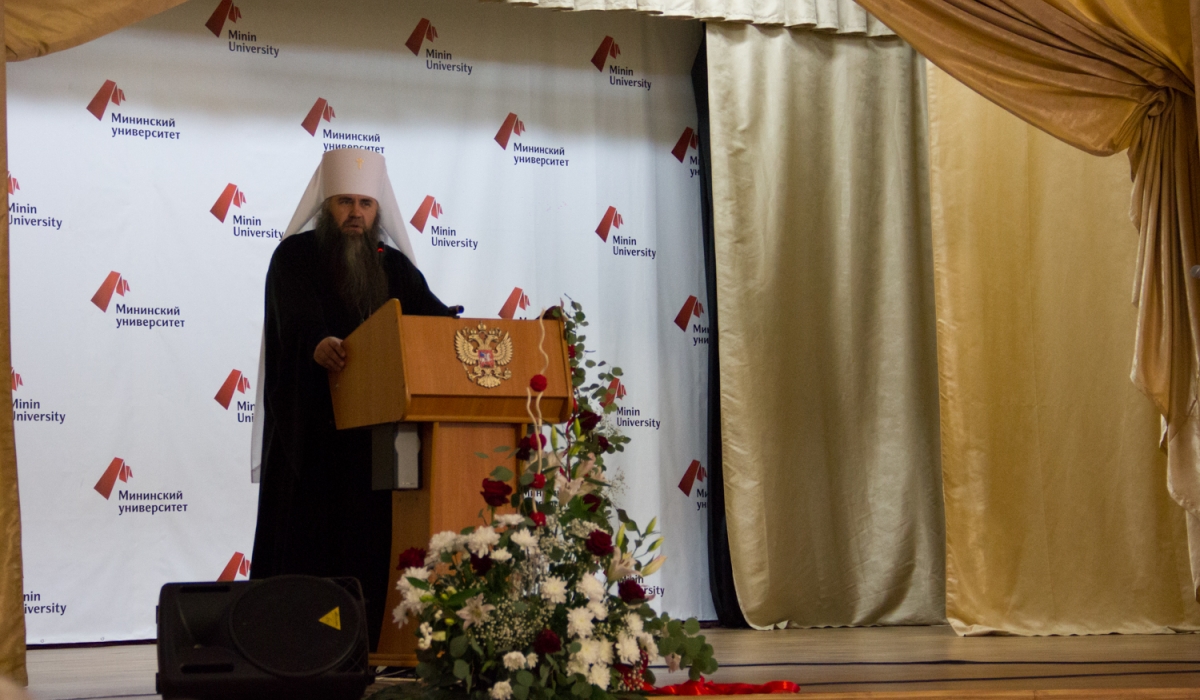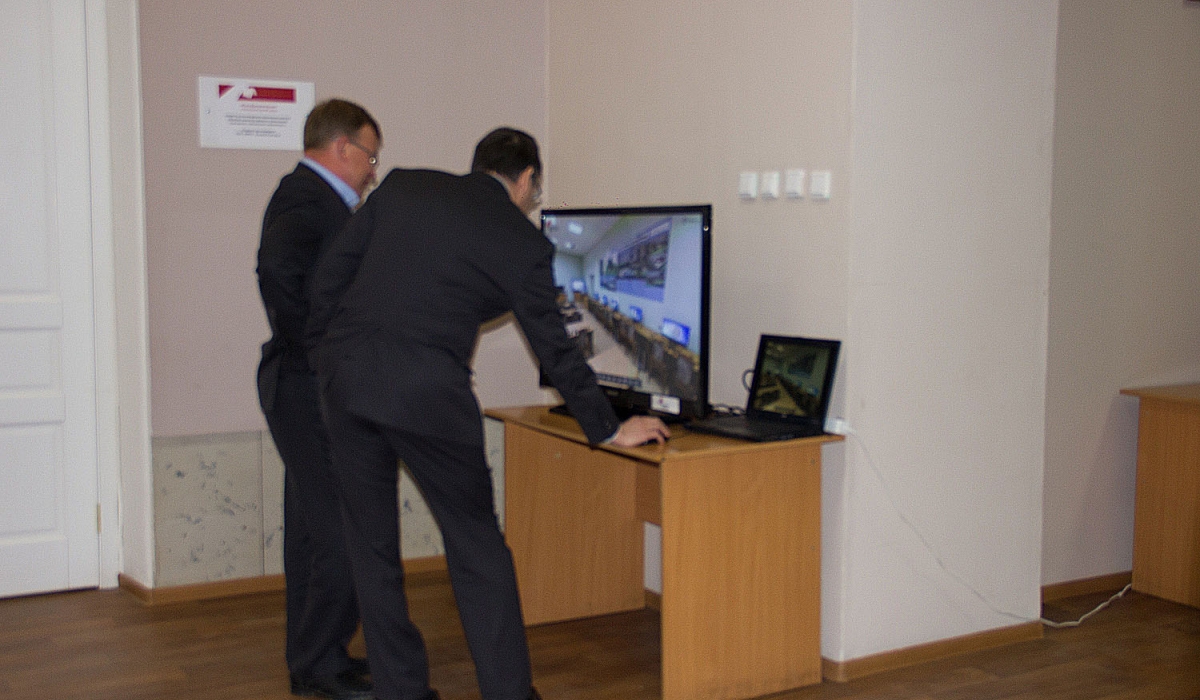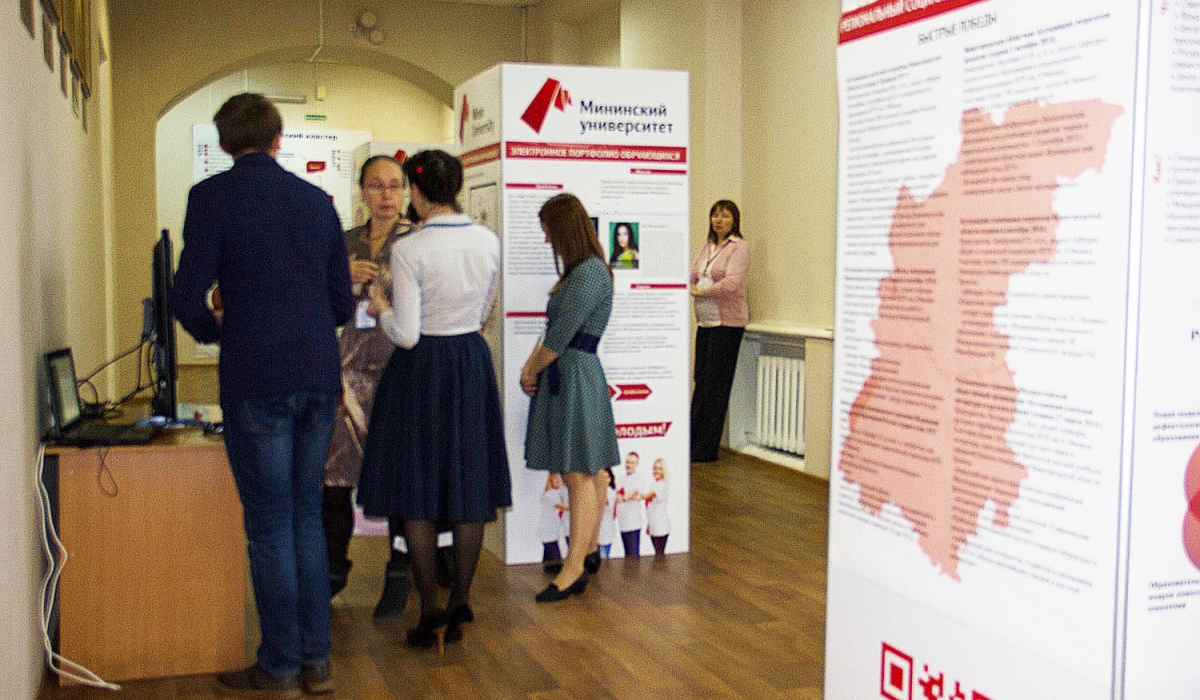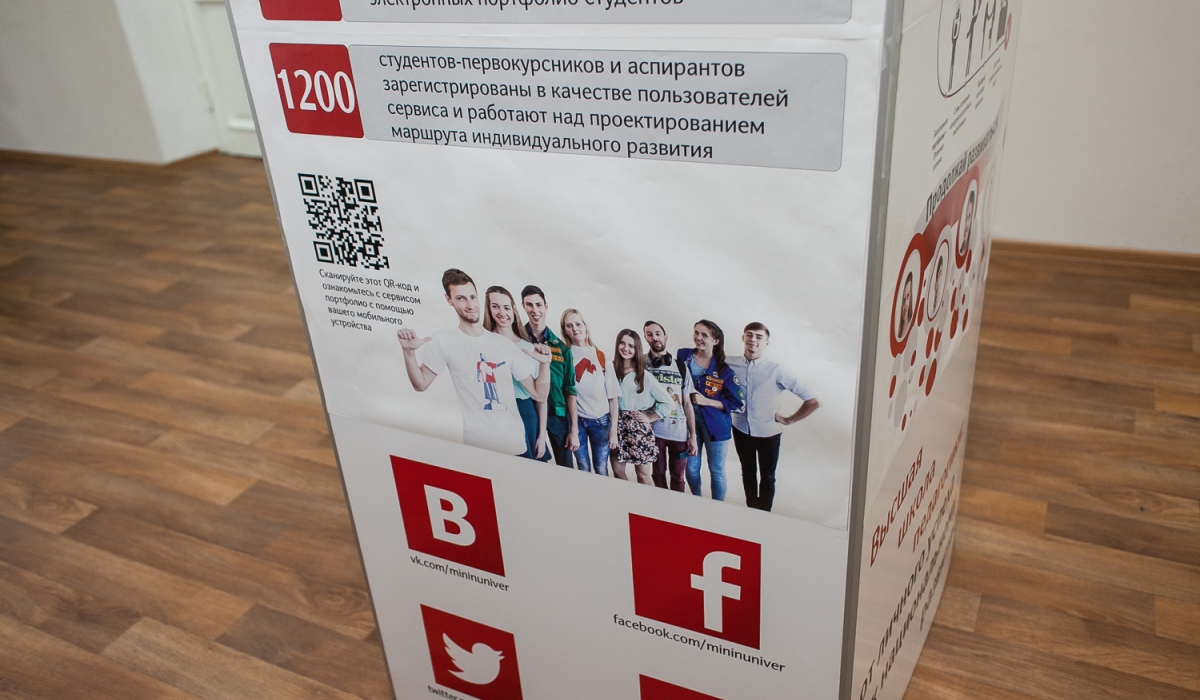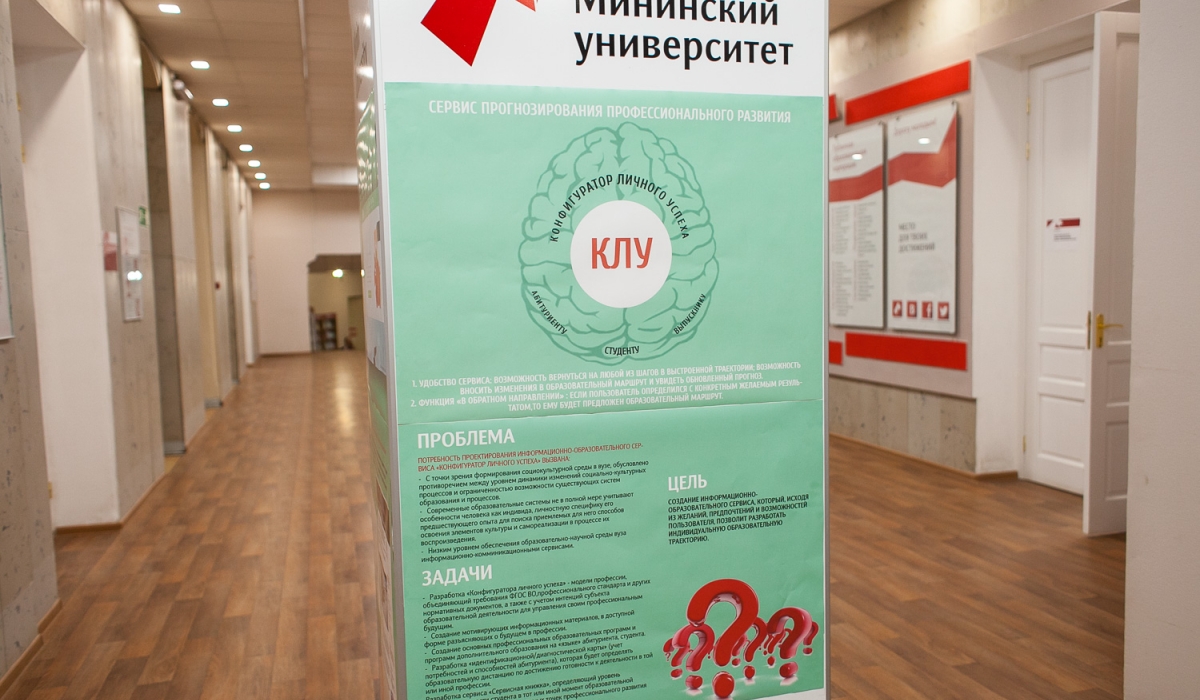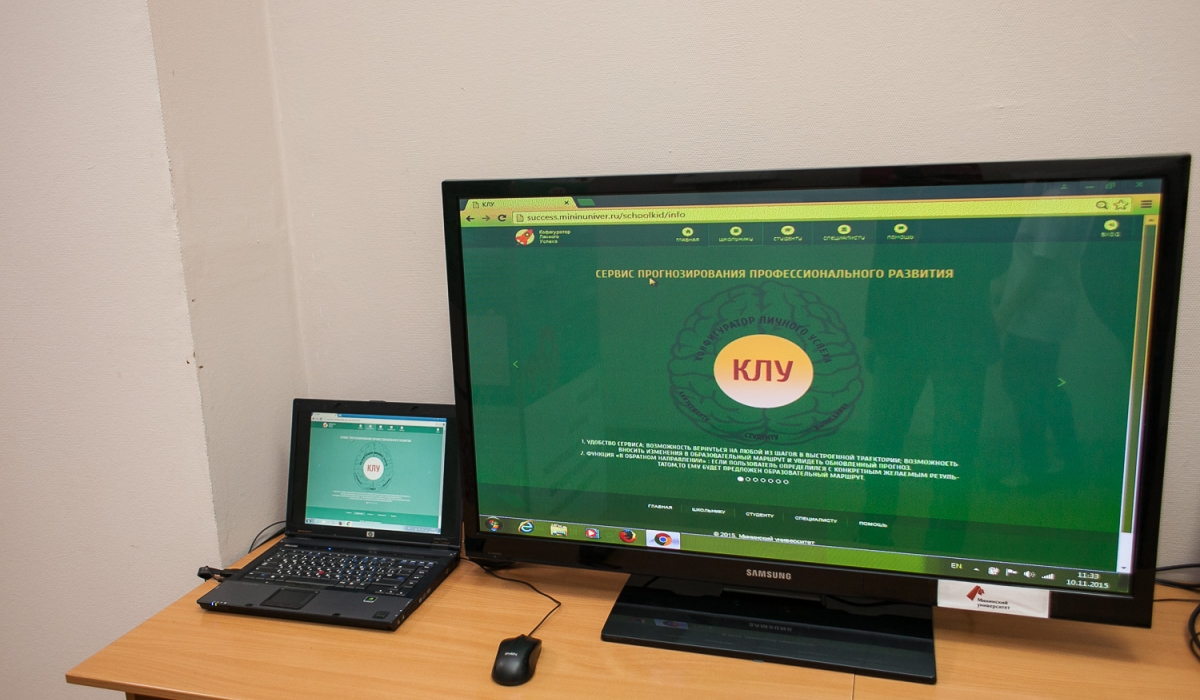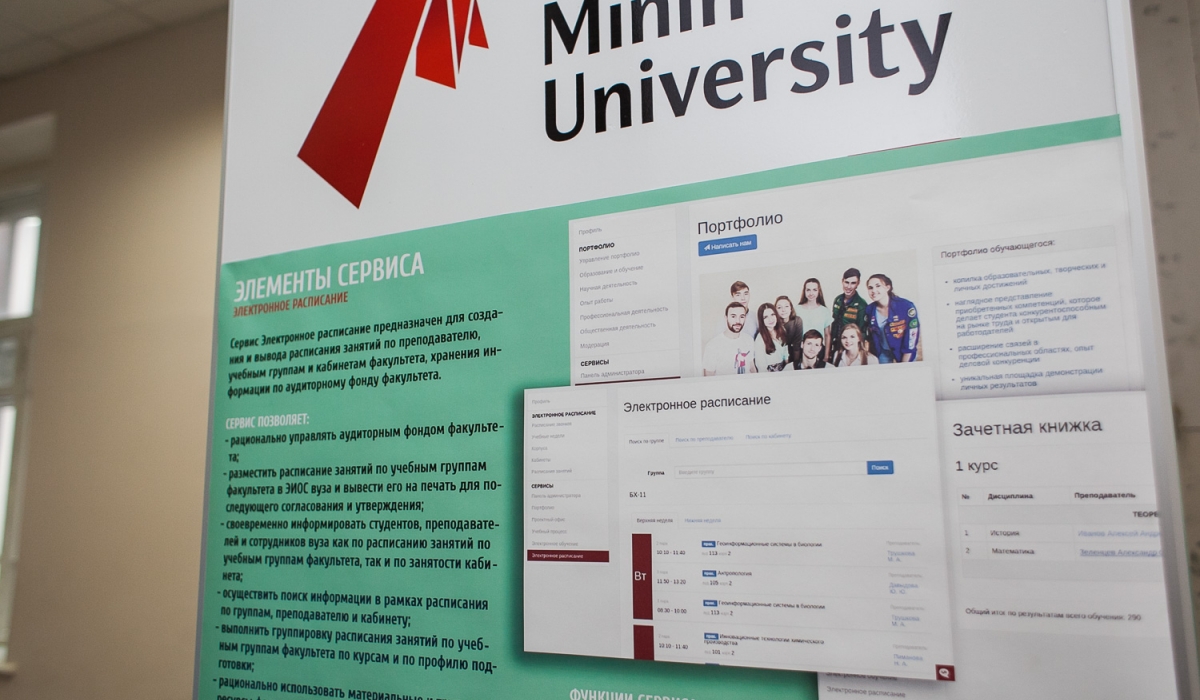The Second Public Report took place on November, 11. The event was attended by a number of high guests, including vice-president of the Russian Academy of Education Viktor Bolotov, rectors of Russian leading universities, Minin University partners, members of expert community, and members of Russian Coordination Council of pedagogical education modernization.
The event was divided into four parts.
The first part was presented by a film. The film itself is a presentation of Minin University's results in 2015, its accomplishments and solutions. The topic of the Second Report was 'Nonstandard solutions. From base pedagogical university to trans-regional holding in educational sphere'. The film revealed the core actions and elements of the Ennead - nine non-standard solutions Minin University has worked out to fulfil 12 strategic initiatives, which form the Minin University Development strategy - 2023. The film underlined the results that have been achieved in implementing the nine solutions which included, for instance, the development of Electronic educational platform, the launch of the Configurator of personal success and the Student's e-portfolio, the initiation of e-service called 'Pedagocial world map' etc. You can watch the film in Russian here.
The rector's report made the second part of the event. Alexander Fedorov gave a positive evaluation of R&D:1-2-3 project, whereas Wardship and Useful mobile office still have much room for perfection. The challenges of 2015 were outlined as follows: division of pedagocial labour, teaching staff ratings, problems in establishing connections with regional partners, insufficient global synthesis, finance shortage. Despite the problems in getting new possible partners, Alexander Fedorov highly evaluated the established partnership with Anhui Pedagogical University of China and network programs with State television and radio broadcasting company 'Rossiya' (Russia) and Institute of applied physics of Russian academy of sciences.
The third part of the Public Report involved experts' speeches concerning the acute issues of pedagogical education on the whole and the implemenation of Minin University Development strategy - 2023 in particular. The speeches included those of Alexander Sobolev's, the head of the Department of state policy in higher education, Sergey Naumov's, the regional minister of education, Viktor Bolotov's, the chairman of Russian Coordination Council of pedagogical education modernization, Aleksey Semenov's, the rector of Moscow state pedagocial university, metropolitan Georgy. The guests highly evaluated the strategy that has been worked out and is implemented by Minin University and stressed the positive impact of the experience on other universities and the sphere on the whole.
Sergey Naumov, for example, admitted Minin University has achieved a lot in popularizing the profession of a teacher in the region. In comparison with 2006, according to the minister, the rate of school leavers choosing the pedagogical university has increased significantly. 'The university wants to and has an ability to move forward. And it is what the university succeeds in', concluded the minister.
Alexey Semenov praised Alexander Fedorov's aspiration for transparency, fairness, and honesty as the latter was not frigtened or ashamed to share both positive and negative experiences with the professional community. Semenov believes the experience of Minin University can and should be transmitted to other universities.
The fourth part of the Report was a stand session, where the managers of each project presented the results of their work in 2015. The results of implementing the Ennead are also available in the form of postcards (for the time being only in Russian).
During the event the guests also had a chance to visit a new Laboratoty complex both in reality and on a 3D-tour.
The day ended with the meeting of Russian Coordination Council of pedagogical education modernization. The representatives of federal Ministry of Education, rectors of leading pedagogical universities of Russia discussed the topical issues of the field, challenges and possible solutions.

